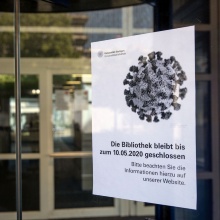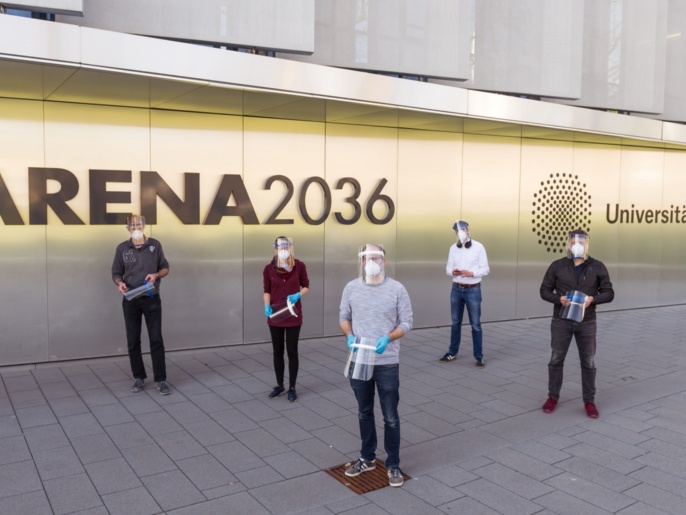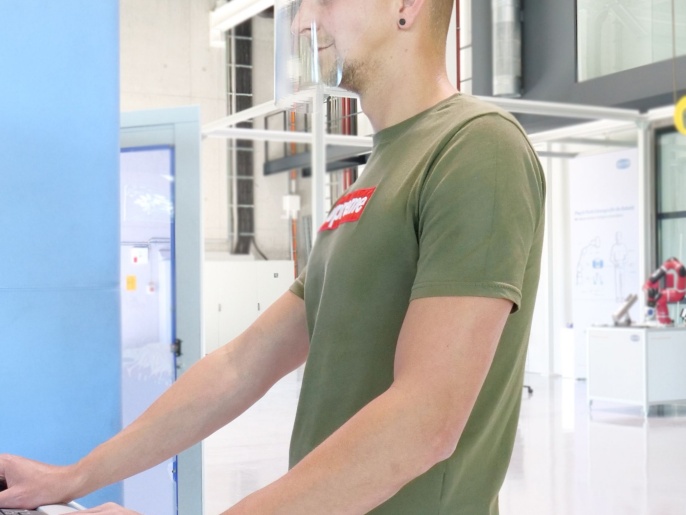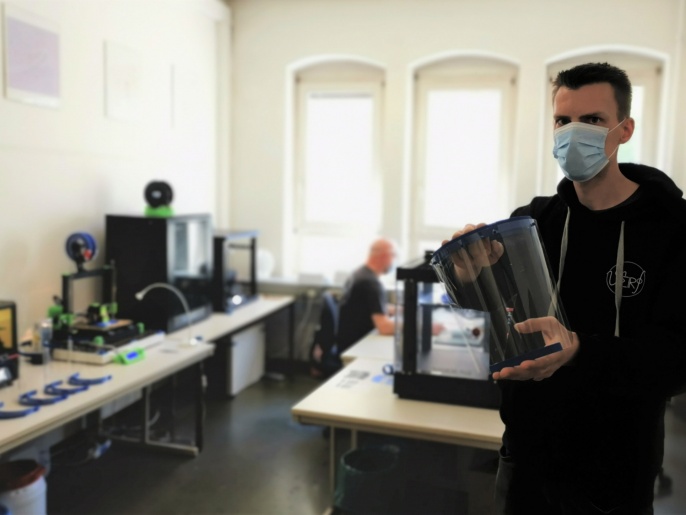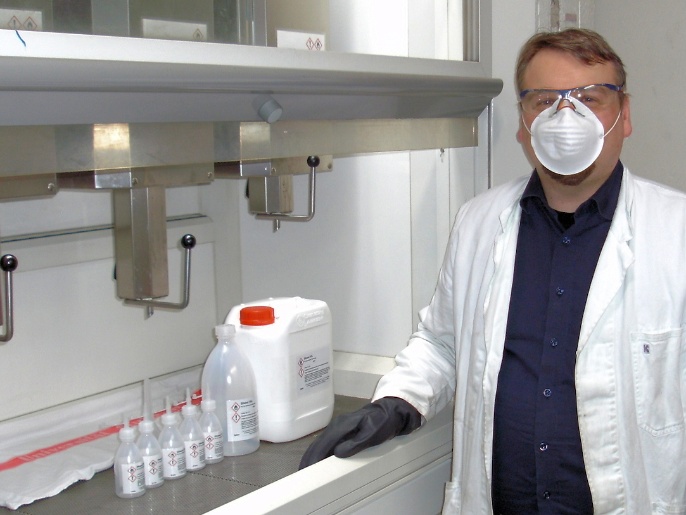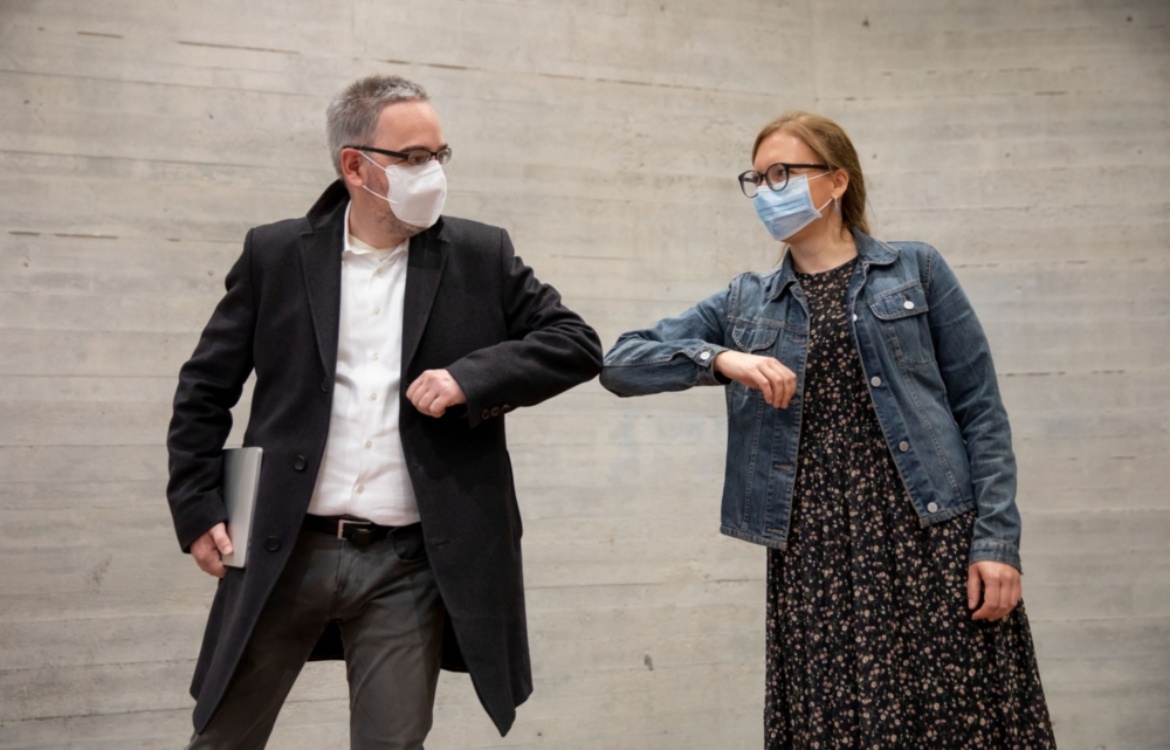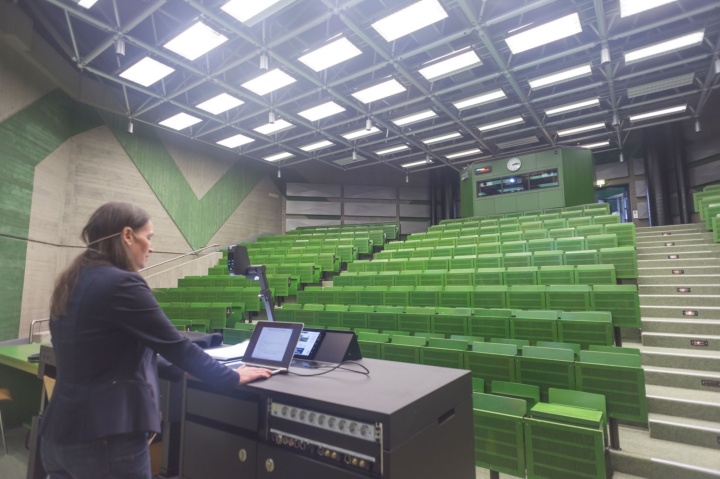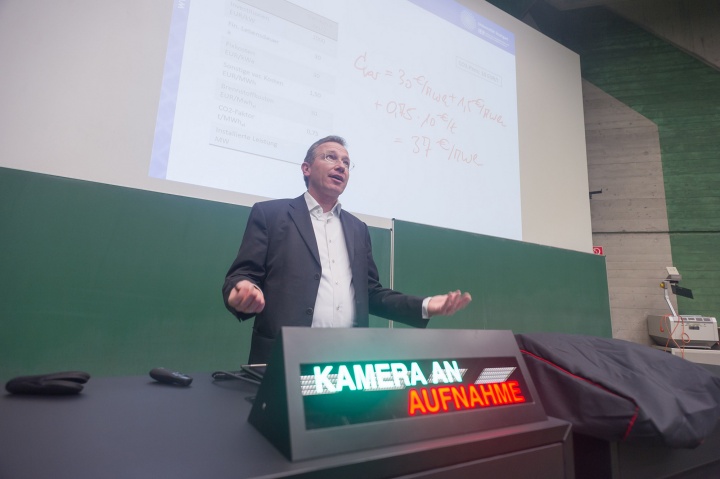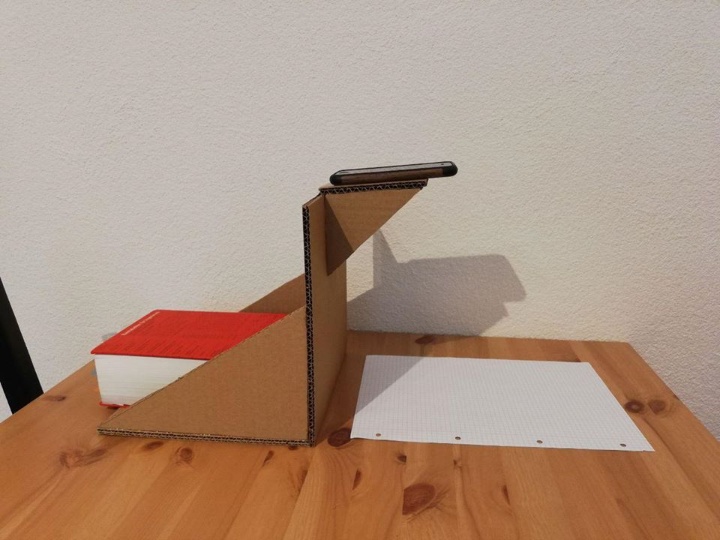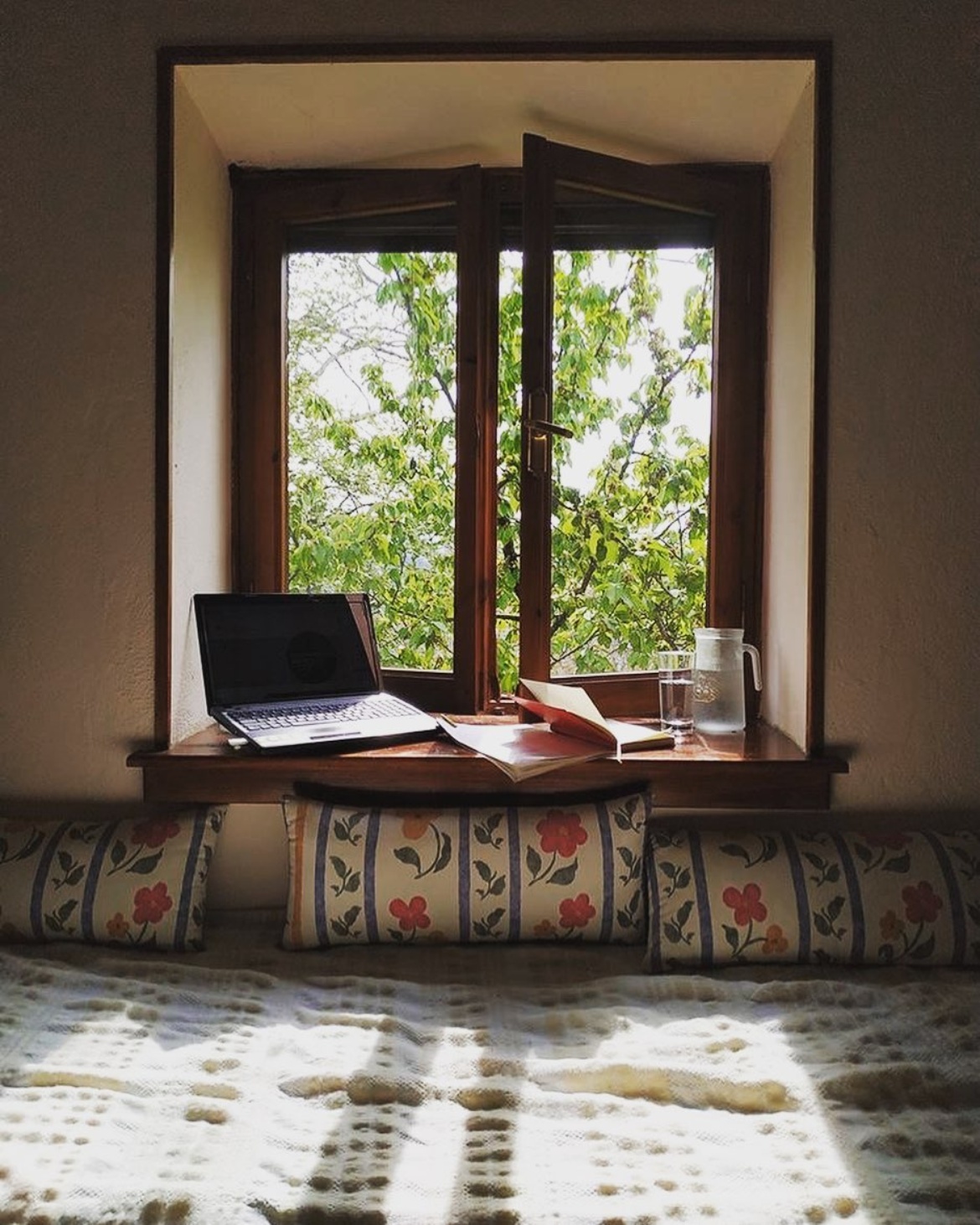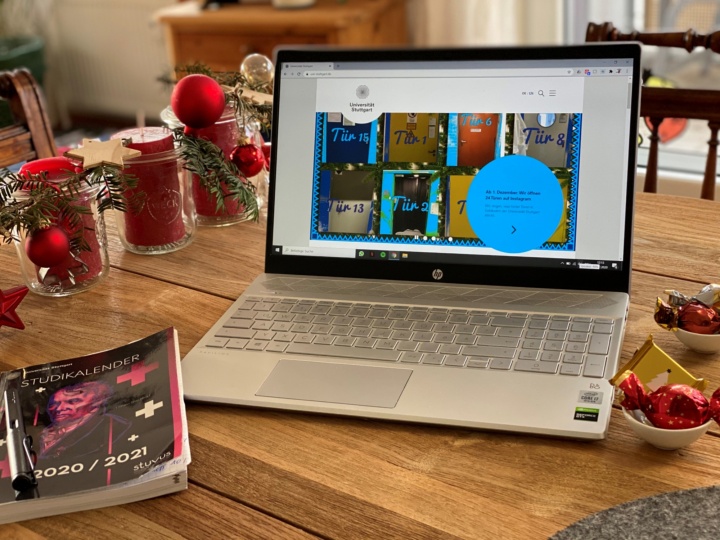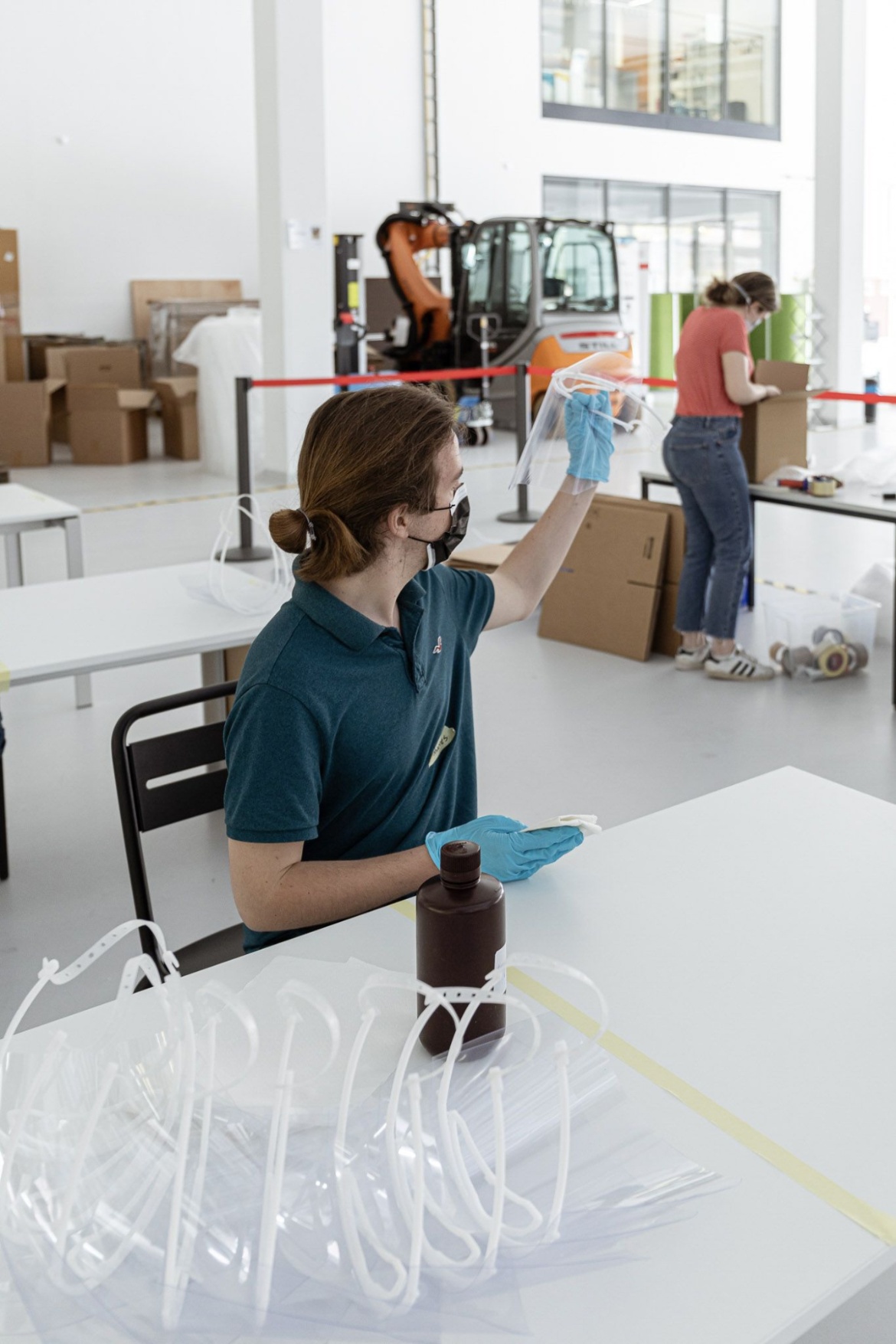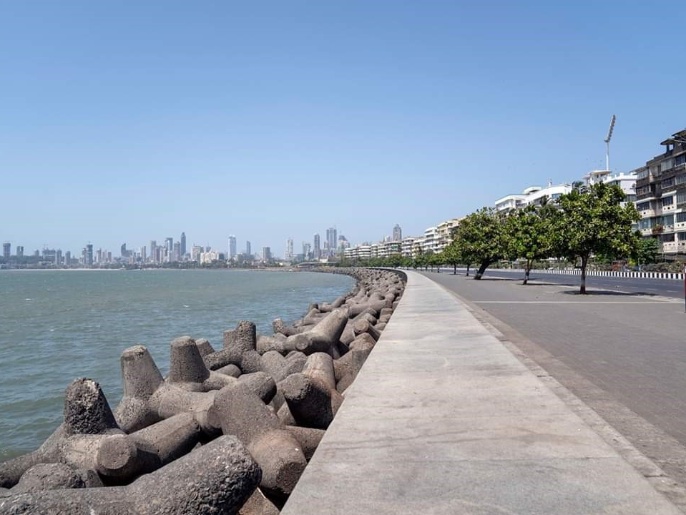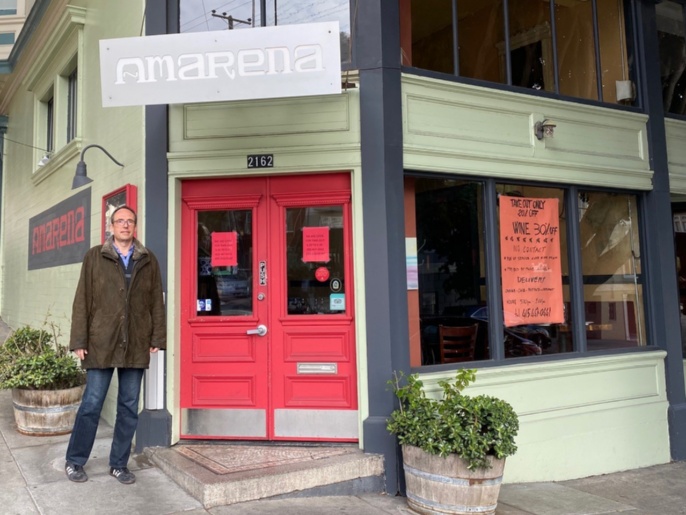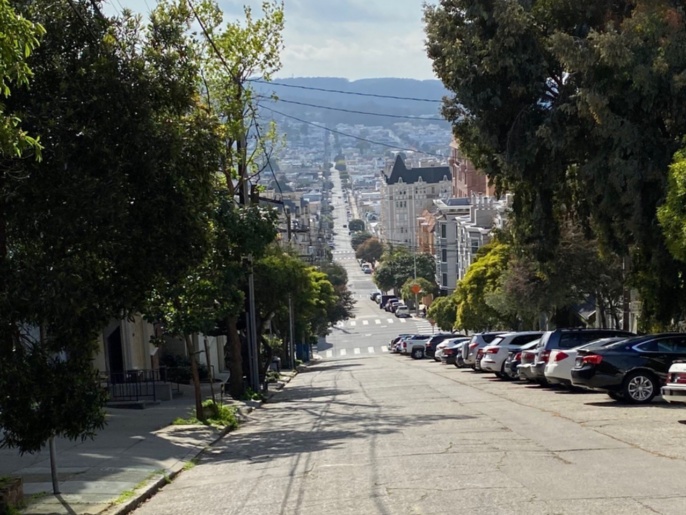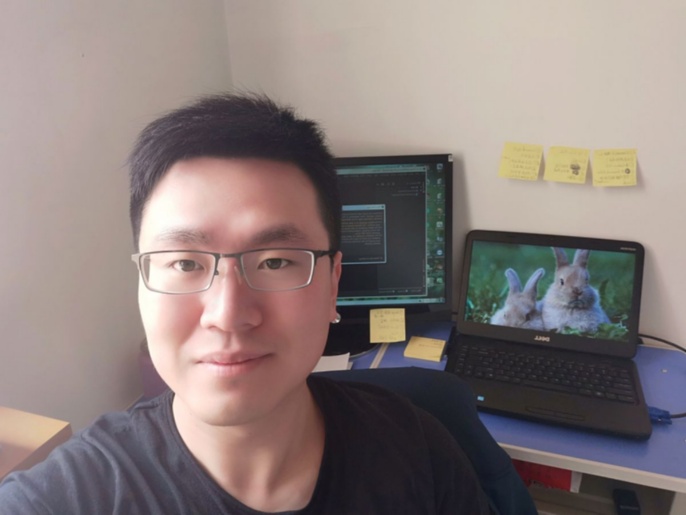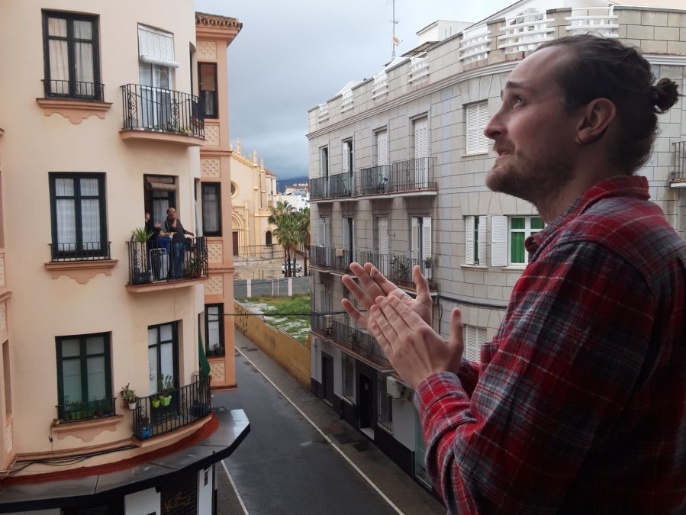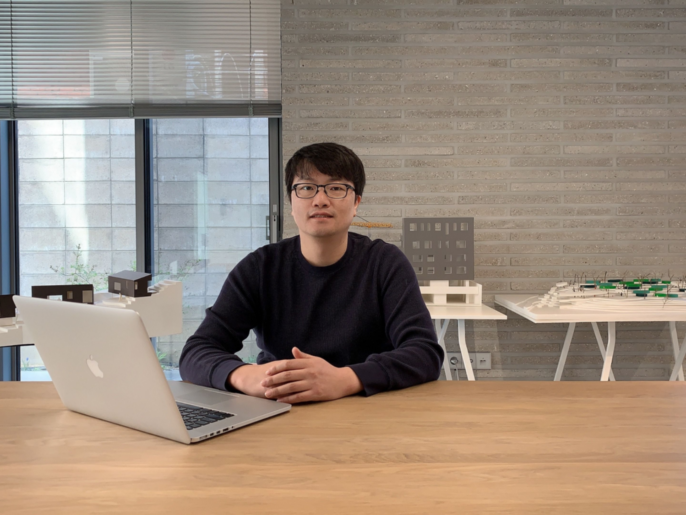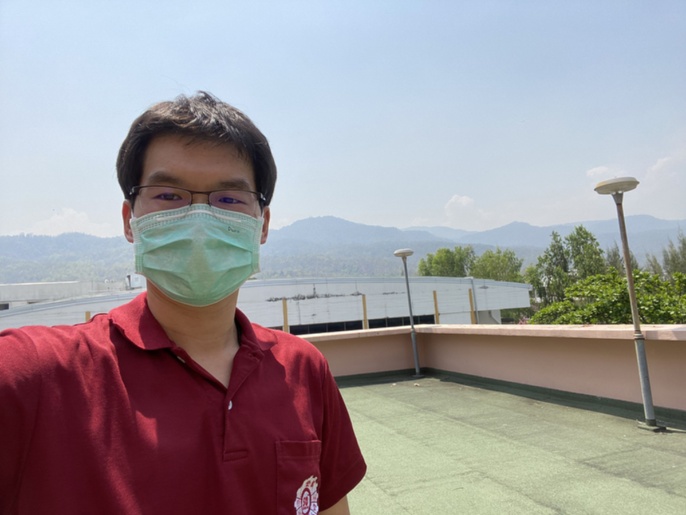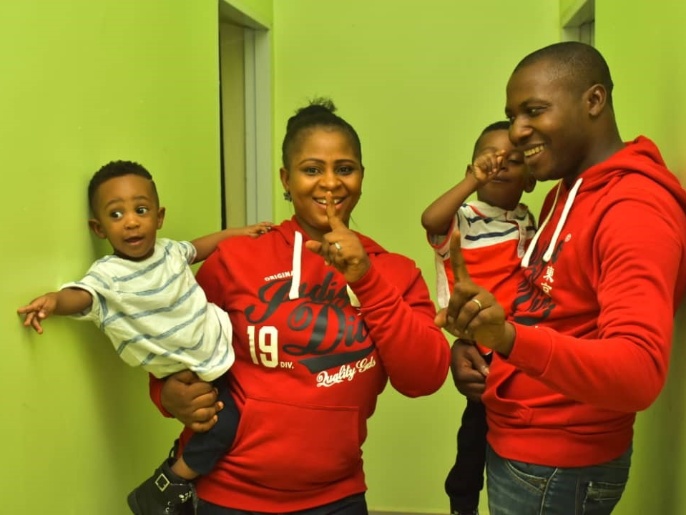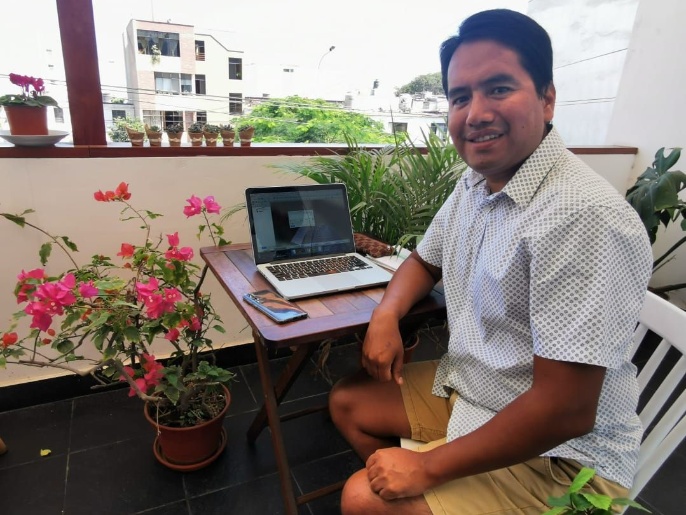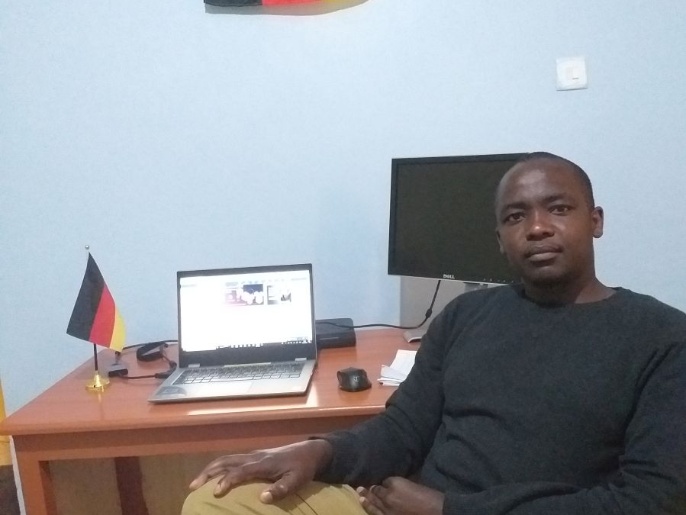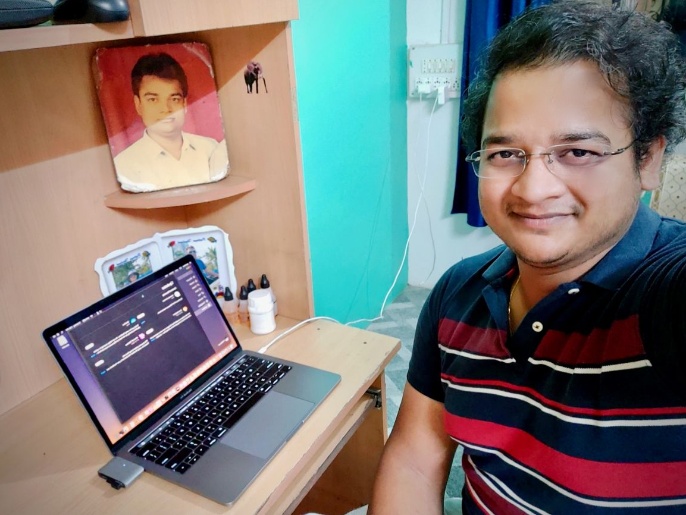Since March 2020, the corona pandemic has overshadowed everyday life in Germany. With only a few exceptions, the campus of the University of Stuttgart has remained empty, and university operations have had to be reconsidered. Numerous research and support initiatives for dealing with the pandemic have been launched. Instructors have switched to digital formats, and students have volunteered to help alongside their digital studies.
Research and support initiatives for dealing with the Covid-19 pandemic
Prof. Dr. Konstantinos Stergiaropoulos, Head of the Institute for Building Energetics, Thermotechnology and Energy Storage (IGTE) at the University of Stuttgart, and Prof. Gunnar Grün, Head of the Fraunhofer Institute for Building Physics (IBP) and professor at the Institute for Acoustics and Building Physics (IABP) at the University of Stuttgart, are members of the new Aerosols Group of Experts of the Baden-Wuerttemberg Ministry of Science. The committee, which began its work on 15 October 2020, has the task to investigate how the risk of SARS-CoV-2 infection in enclosed spaces can be reduced.
Further information: Press release; Scientists from the University of Stuttgart are part of expert team on aerosols
Contact: Prof. Dr. Konstantinos Stergiaropoulos,Institute for Building Energetics, and Prof. Gunnar Grün, Institute for Acoustics and Building Physics
To support hospitals and medical practices in direct contact with Covid-19 patients, researchers at the University of Stuttgart have been using existing production capacities to manufacture new face shields with the help of 3D printers. Scientists at the ARENA2036 research campus and the neighboring institutes on the Vaihingen campus of the University of Stuttgart using available facilities typically reserved for constructing prototypes for automotive, aerospace, and engineering applications. Three hundred masks were sent to the partner university in Bergamo for further distribution. In the meantime, most of the activities have been taken over by students in order to relieve the staff.
Further information: Press release
Contact: Dr. Frieder Heieck, Research Coordinator of ARENA2036
A simple, crisis-relevant product to protect against coronavirus infection has been developed by the Black Forest Campus with the Institute of Industrial Manufacturing and Management (IFF) of the University of Stuttgart, the Fraunhofer Institute for Manufacturing Engineering and Automation (IPA), the packaging expert Koch Pac-Systeme GmbH, and the vacuum specialist J. Schmalz GmbH. All materials come from Baden-Wuerttemberg. The face shield can be produced quickly and in large numbers. It comes in two versions, is extremely lightweight, and can easily be worn over glasses. Both products are easy to manufacture, thus guaranteeing the production of up to 100,000 pieces per week. The Black Forest Campus came into being through an initiative of regional companies, the District, and the City of Freudenstadt as well as the Northern Black Forest Chamber of Industry and Commerce. Through the cooperation with the University of Stuttgart and small and medium-sized enterprises as well as the Hidden Champions of the region, the Black Forest Campus has become an important building block for an excellent university education and the development of cutting-edge technologies in the field of digitization in mechanical engineering.
Further information: Press release
Contact: Thilo Schlegel, University of Stuttgart, Institute of Industrial Manufacturing and Management
The Institute of Polymer Technology (IKT) of the University of Stuttgart produced mainly film for the visors of the face shields but also complete face shields. The shields were distributed to the University Hospital of Tübingen, the Stuttgart Food Bank, and the emergency practice of the Marienhospital in Stuttgart, among others. Under the coordination of the ARENA 2036 research campus, additional sites were supplied. The film used for the visors and the filaments used for 3D printing were produced on the extrusion lines and processed in the 3D printing laboratory of the IKT. A bio-based and biodegradable polylactide (PLA) is used for both the film and the filament. Thanks to the specifically adjusted extrusion process, particularly clear film can be tailor made for the visors.
Further information: Print on demand in the fight against corona
Contact: Alexander Geyer (MSc.), Head of the Processing Technology Department
In March, the market for disinfectants was quickly depleted. Although general decrees issued by the Federal Institute for Occupational Safety and Health (OSH) had enabled pharmacies, pharmaceutical companies, and authorities to produce isopropanol- or ethanol-based disinfectants locally, the starting materials were in short supply. At the peak of the corona crisis, the Faculty of Chemistry at the University of Stuttgart produced urgently required hand disinfectant on a large scale for and with the Association of Statutory Health Insurance Physicians under the supervision of pharmacists in order to bridge bottlenecks. The association supplied outpatient clinics and emergency medical services. Almost 2500 liters were made available throughout Baden-Wuerttemberg. In the meantime, the supply by pharmacies has once again been secured. The University of Stuttgart was able to deal with the acute emergency by mobilizing its own supplies and deploying personnel and materials in the production process.
Further information: Faculty of Chemistry produces disinfectants
Contact: Dr. Clemens Richert, Chair of Biological Chemistry, Institute of Organic Chemistry
The Technical University of Braunschweig, the University of Stuttgart, the Junge Academy, and the company Arctoris have jointly addressed the issue of efficient testing. An interdisciplinary team of mathematicians, computer scientists, and physicians has developed a decision support tool that calculates which procedure in a positive sample pool is able to identify all persons suffering from Covid-19 as effectively as possible. Their simulations show that pool-based test procedures in Germany can be about eight-fold more efficient than individual tests. The underlying approach has been validated experimentally for use in Covid-19 diagnostics and is already being applied in California and India, among other places. The method is based on a tried and tested approach to testing blood donations for viruses. Several samples are first tested as a pool. If this first test is positive, further individual tests are performed (possibly in several stages). A single test kit can thus be used to test several patients at once, thereby increasing the available test capacity several times over.
Further information: Press release
Contact: Dr. Dirk Pflüger, Institute of Parallel and Distributed Systems (IPVS), University of Stuttgart
In order to minimize the rate of new infections while limiting the negative consequences on social and economic life, protective measures should be adapted to the respective case numbers. However, this is difficult because of the dynamic data situation as well as the complexity of the infection process and measures. Researchers at the University of Stuttgart have now applied a computational model with which the effects of adaptive measures can be predicted much more reliably when there is uncertainty.
Further information: Press release
Contact: Dr. Frank Allgöwer, University of Stuttgart, Institute for Systems Theory and Automatic Control (IST)
Research on the effects of the pandemic
In addition to the dramatic health effects of the current global Covid-19 pandemic, economies around the world are severely affected, and global supply networks are often blocked. Companies need to rethink these supply networks and consider how they can proactively manage potential supply risks. In different problem areas, it was investigated what companies can learn from the crisis and which solutions should be implemented. Supply risk management identifies supply risks and develops action strategies. This requires transparency about supply networks and their diversification as well as risk monitoring.
Further information:
The impact of Covid-19 on the supply networks of companies
Contact: Dr. Andreas Größler, Institute of Business Administration at the University of Stuttgart
University-wide solidarity campaign "Healthy. Jointly!"
The university-wide solidarity campaign "Healthy. Jointly!" is intended to draw attention to how important it is that all members of the university adhere to the AHA+C+L rules, namely mask, hygiene, social distancing, corona-app (also on business cell phones) and ventilate the room.
Digital teaching
Support for teaching staff
The university has worked hard to support the teaching staff in preparing and implementing online teaching formats and provide technical resources. The Task Force Digital Teaching has compiled an overview of all university-wide consulting services, instructions, and training courses.
eScouts as multipliers of digital instruction methods
In order to make the first digital semester a successful one, about 90 students from the University of Stuttgart voluntarily supported instructors in learning new technologies and designing digital lectures. The eScouts were trained in using e-learning tools and consulting methods so that they would be able to assist with technical questions concerning the learning platform ILIAS, the video conferencing system Webex, and lecture recordings. Another 60 or so tutors are trained contact persons for transferring classroom lectures into digital teaching units.
Weitere Informationen:
eScouts in digital teaching
Zusammen ins dgitale Sommersemester 2020 [dt]
Individual solutions – “When the lecturer becomes a YouTuber”
On its own initiative, teachings staff at the University of Stuttgart has also worked out individual solutions for online teaching formats. For example, Dr. Fabian Bross from the Institute of Linguistics worked with digital recordings even before the corona pandemic. This has helped him in the transition to digital teaching. His living room has been transformed into a recording studio from where he gives video lectures to his students. In an interview with Bayrischer Rundfunk [dt], he talks about the challenges of digital teaching.
TV programs from the University of Stuttgart
Faculty 1 Architecture and Urban Planning has opened the online TV channel K1 TV [de]. This is a colorful and exciting start to online teaching for the winter semester from the faculty’s architects. The first program "Stuttgarter Schule: Corona, die Stadt und die Architektur(-Lehre)" was held in talk show format and focused on the effect of the corona crisis on the built environment.
Student initiatives and the perspectives of students
Digital studies
In the post “Traum oder Alptraum? Studieren in Zeiten von Corona" [dt]” on the blog of the University of Stuttgart, two students report on how they experienced the first days of working from home and where they faced special challenges.
Students also provided personal insights into their everyday learning in numerous Instagram stories. In spite of discontent about technical obstacles, serenity and an understanding that teaching activities must be adapted to the new situation have prevailed. In response to the social media call from the university to submit a photo to the #stayathome edition, many students sent snapshots of their private learning environments.
Taking stock of two semesters of online teaching
At the end of 2020, and after two digital semesters, the USUS report Corona Semester 2.0 takes stock of the highs and lows of studying digitally.
Student commitment to overcoming the crisis
The pool of helpers set up by the stuvus student union (with around 300 registered volunteers from various colleges and universities) has logged thousands of hours to help mitigate the effects of the pandemic. In addition to assignments in university institutions, the volunteers help the German Red Cross and the Stuttgart Food Bank. With great commitment, the students have demonstrated social responsibility in the last weeks.
Weitere Informationen:
Students help in quarantine station
Students continue voluntary commitments
Kontakt:
Hotline: 0711/685-60751
Email
Stuvus website
International gestures of solidarity
Mihály Zeke has been the Musical Director of the University of Stuttgart since March. The corona lockdown has not curbed his desire or that of the ensemble to make music. The idea of recording a musical message of solidarity for the partner university in Bergamo as a “virtual ensemble” was quickly born. The famous prisoner choir “Va, pensiero” from Verdi's opera “Nabucco” was chosen.The welcome address is given by Maria Rimini-Döring, a singer of the academic choir, who comes from Bergamo. The piece of music starts at 2:42 minutes.
Further information: A musical message of solidarity for the partner university in Bergamo
The University of Stuttgart has received 500 surgical masks and two infrared clinical thermometers from the National Taiwan University of Science and Technology (Taiwan Tech). This friendly gift in times of corona was sponsored by the Taiwan Tech Alumni Association. Taiwan Tech is one of our partner universities in Taiwan. We have an ongoing student exchange program with them.
Further information:
The partner university Taiwan Tech has donated 500 masks to the University of Stuttgart
In recent weeks, alumni of the University of Stuttgart worldwide have sent pictures from their (adopted) home country and reported on the current situation there. The University has received contributions from India, Kenya, Peru, Nigeria, South Korea, Japan, China, Spain, the USA, and Thailand. The contributions were published on the social media channels of the university.


